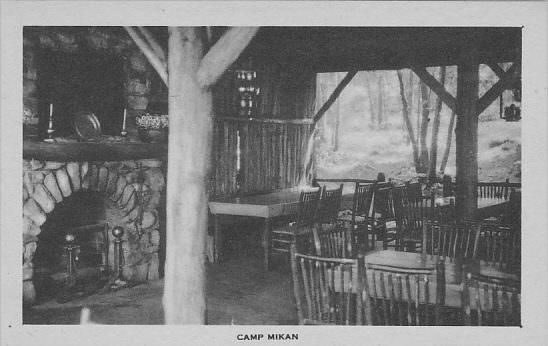|
In 1952 I was a junior counselor whose primary job was to take care of the girls in my bunk, inner city girls, around 12 years old, from poor neighborhoods. Although they were tough in some ways, dealing with rats, cockroaches, marginal housing, uncertain meals, and human predators, they’d never spent time in nature, used a latrine, hiked in woods, or seen raccoons enter their bunk to eat food they weren’t supposed to have. What they complained of most, was being told what to do by me, their counselor, only a few years older than them. One night, as they were getting ready for bed, a fight broke out. When I went to intervene, they turned on me, telling me how much they hated camp and hated me even more. Their histrionics reminded me of opera and so I told them they could say how much they hated me but they had to sing it. Their look of incredulity made me laugh. Some of them laughed as well at the absurdity of what I’d just said, but, one of them took me seriously and began to sing—she actually had a lovely voice—how much she hated me. Others joined in, their words and sounds clashing, making a rather satisfying cacophony.
When they stopped, one of them told me it was my turn. I cannot sing. I can barely carry a tune, so to cover my lack of ability I practically croaked how much I loved being their counselor, how much I wanted to take them hiking and swimming and helping them learn to make plays, and dances, ignoring all their words of hate. I sang how much I loved hearing their complaints in song. When I finished one girl asked, “How can you sing about loving us when we sang about hating you?” I shrugged. “How you feel about me has nothing to do with how I feel about you. You’re entitled to your feelings.” Another girl admitted, “We don’t really hate you but it was fun to sing about it, especially because you didn’t get mad at us. A third girl said, “This is really fun. We should do it more often.” I had an idea. “What if we asked the director to make space after Sunday lunch so that anyone who has a complaint can share it with the camp, only she has to sing it.” They were absolutely sure the director would not allow this, but I wasn’t so sure. The next morning I went to her, told her what happened, and made my suggestion. “My girls will volunteer to show the rest of the camp how to do it.” It took a bit of persuasion but she agreed to let them complain, in song, after Sunday lunch. The next Sunday, after lunch, the director told the campers that she was starting a new program. Anyone with a complaint could voice it, but she had to sing it. She invited my campers to begin. In the meantime, they had decided what they would complain about and so they were prepared in ways other campers weren’t. But, a lot of them had complaints and were more than willing to sing them. The director took note, and responded in song. What began as a way to defuse a fight became a Sunday after lunch ritual. How might singing what you feel, rather than speaking, affect you?
2 Comments
Marlene Simon
3/3/2022 12:05:01 pm
OMG, that was genius! And I particularly loved how Nancy took the high ground and stayed in her adult role and gave the girls an opportunity to voice their frustrations and in such a clever and creative way. Just brilliant. And then took it further and turned it into a creative way for the camp to hear grievances. And to sing about them. How wonderful. Everything sounds better or can be "heard" when sung. So lovely. Bravo!
Reply
3/4/2022 06:54:07 pm
this is a wonderful story on all levels. and what a sly, arty, fresh way to deal with the kids and their criticism.
Reply
Leave a Reply. |
Monthly StoriesStories inspired by world tales to challenge and comfort. Archives
July 2024
Categories |
Copyright © Nancy King 2020 | Site Design by Angulo Marketing & Design
|
|
Nancy King is a widely published author and a professor emerita at the University of Delaware, where she has taught theater, drama, playwriting, creative writing, and multidisciplinary studies with an emphasis on world literature. She has published seven previous works of nonfiction and five novels. Her new memoir, Breaking the Silence, explores the power of stories in healing from trauma and abuse. Her career has emphasized the use of her own experience in being silenced to encourage students to find their voices and to express their thoughts, feelings, and experiences with authenticity, as a way to add meaning to their lives.
|


 RSS Feed
RSS Feed